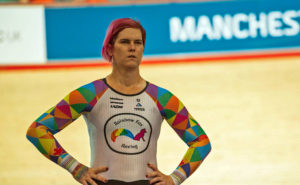In his Dictionary of Accepted Ideas, Gustave Flaubert alphabetised some of the cliches and platitudes common among the French bourgeoisie during the 19th century. His aim, in his own words, was “the historical glorification of everything generally approved”. Under “Bandits”, he wrote: “Always Fierce.” Under “Materialism”: “Utter the word with horror, stressing each syllable.” Under “Tights”: “Sexually exciting.” And under “Woman”: “Person of sex. One of Adam’s Ribs.”
Were Flaubert to revive his Dictionary for the UK today, he might keep the bit about materialism. But presumably the “Woman” entry would now read: “Can have a penis. If one is a Labour MP, utter this sentiment with great conviction in interviews.”
Last weekend it was the turn of Stella Creasy to provide the Daily Telegraph with an easy headline, in the course of a wider interview about her work as a campaigner for women’s rights. “Do I think some women were born with penises?” the MP for Walthamstow asked herself. “Yes,” came her response. “But they are now women and I respect that.” Warming to her theme, she continued nonsensically: “I am somebody who would say that a transwoman is an adult human female”.
Typically, Flaubert’s readers tend to know things about his characters which the characters themselves do not. Today, however, we don’t have to read Flaubert to get our fix of dramatic irony — we can just look at Twitter. For the past few days, Creasy has been issuing combative ripostes to those who criticise her claims about womanhood. In this, she has tended to cycle between passive-aggressive jabs, high-handed dismissals (she has a PhD, you know), complaints that she is being victimised, and stateswoman-like pleas for calm. She seems unaware both of her boss Keir Starmer’s recent call for a more “mature and respectful debate”, and of the role that her own communication style perhaps plays in stirring up opponents.
To Open University philosopher Jon Pike — who happened at the time to be referring to some ideas from my recent book — she said that he was talking pseudoscientific gobbledegook (ouch, Stella) and that she feared for his students. She accused JK Rowling, who to all intents and purposes appeared to be tweeting about something else, of “attacking” her by using the phrase “luxury beliefs”. Apparently forgetting she had just told the Telegraph that “we need to stop these microaggressions against women: ‘You’re difficult, you’re mad, you’re hysterical’”, she tweeted that it had been “fun being on Twitter today given the hysteria about the law around trans people and their status.” (She later claimed this was a “pun”). And after saying that she had already met with gender-critical women’s groups, and then being presented with evidence that she hadn’t, she tweeted that she couldn’t be expected to keep track of all the different groups, and made a reference to the People’s Front of Judea. And when that didn’t go down well, she claimed she was being attacked for being a Monty Python fan. (Presumably she hasn’t watched Life of Brian’s “I want to be a woman” scene lately.)
It was in the middle of all this that I started to see Stella Creasy as cutting a somewhat Flaubertian figure. Whereas Emma Bovary’s head was turned by reading too many romantic novels, Creasy’s formative influence seems to have been overexposure to books about Girlboss feminism. Her preferred flavour of feminism is liberal, and the name of the game is personal empowerment: every performatively feminist intervention she makes could be taken straight from the Spice Girls’ Big Book of Leaning-In with Hillary Clinton. She wants to have the rules of parliament changed so women MPs can bring their babies into the debating chamber; she is the face of a campaign to make misogyny a hate crime; she wants to ban catcalling in Walthamstow; she is pro-breastfeeding in public, and so on. And she crowdfunds her political campaigning like a true #mumtrepreneur.
Also a bit like Emma Bovary, Creasy’s grip on practical detail can get lost and her grand gestures misfire. Earlier this month, she weighed in on the overturning of Roe v. Wade by bizarrely comparing the UK’s laws to those in America, where women could soon be imprisoned for terminating a pregnancy that isn’t the consequence of rape or incest. Meanwhile, her well-publicised campaign to make misogyny towards “sex or gender” a hate crime seems to have foundered: women’s groups have rejected the proposal for making serious crime against women harder to prosecute, and the government rejected the amendment last week. And her attempts to make parliamentary hours more compatible with motherhood have reasonably been criticised for being overly skewed towards London-based MPs like herself: for female MPs with constituencies elsewhere, cutting late sittings would prolong the number of days they would have to spend away from their kids.
Just as Flaubert was interested in using the character of Emma Bovary to examine the social structures of French provincial life, we can learn quite a lot about bourgeois feminist mores from looking at Creasy’s indicative campaigning strategies. It’s notable that the majority of her projects are linked to personal events. Making parliament more family-friendly after having kids; lobbying for laws against internet stalking after facing shocking online harassment herself; campaigning against voyeuristic “breast pests” after being photographed breast-feeding on a train; and, as discussed in her Telegraph interview, campaigning against sexual harassment after a group of male undergraduate peers at Cambridge made a grim joke about gang-raping her.
This sort of personalised campaigning is endemic to modern feminism, and, interestingly, does not extend to the rest of Creasy’s political activism, which includes a laudably selfless campaign to tackle unregulated loan-sharks. Though the strategy obviously offers easy and relatable media hooks for middle-class graduate readers, it does tend to mean that the resulting political interest won’t necessarily be of the most urgent relevance to other women.
In the past, when challenged about why she doesn’t tackle devastating issues like domestic violence more directly, Creasy has argued that campaigns of hers such as the one against street harassment are aimed at changing the background culture which gives rise to graver forms of violence. But as with much modern feminist strategy, there is a lot of ambiguity about the supposed mechanism here. To me, it’s not obvious that criminalising relatively trivial things such as wolf-whistling and catcalling will disincentivise violent men from going home to hit their wives.
Most telling of all for the contemporary state of feminism is Creasy’s terminal confusion about what buzzwords such as “misogyny”, “patriarchy” and “sexism” are supposed to mean, once it’s conceded that males who feel they are women can be the victim of such things. In her tendency to try to redefine woman-related concepts in the pursuit of kindness — and to tell other women off paternalistically for not going along with it — Creasy is utterly generic. In her Telegraph interview she says that: “As an old-fashioned feminist, I’m still fighting the patriarchy… And one of the things that happens to trans women is that they are oppressed because the patriarchy goes: ‘Oh well you’re a woman, right that’s it, let’s pick you apart.’ So it’s right for me to stand with my trans sisters and say: ‘Let’s fight these battles together.’”
But — at the risk of stating the obvious — for the majority of transwomen, the reason they face discrimination is not because society thinks they are women. It’s because, no matter what lip service is paid, it knows they are not. It counts them, precisely, as non-conforming with their male sex. Standing against oppression in all its forms is admirable, but verbally conflating different kinds of oppression in the name of maintaining the fiction that males can literally become women helps no-one.
Viewed in this light, it is a great relief that Creasy’s amendment to make misogyny on the grounds of “sex or gender” a hate crime seems to have failed. It would have been inoperable. Sex and gender are two different things, and those who advocate in the name of one are often in conflict with those who speak in the name of the other. To treat the two as interchangeable, simply by virtue of their relation to certain superficially shared personal experiences, is the ne plus ultra of middle-class politics.
And so we are brought back, once again, to Flaubert, who was fond of playfully piling up incoherent descriptions of the same object, layering detail upon detail, until the meaning of the scene collapsed for the reader into puzzling incoherence. Take Charles Bovary’s hat, described in the opening pages of Madame Bovary: “one of those composite hats, where you find traces of the bearskin, shako, derby, sealskin cap, and cotton nightcap… oval, stiffened with whalebone, it began with three round lumps; then alternating lozenge-shaped patches of velvet and rabbit skin separated by a red band; after that came a sort of bag that ended in a cardboard polygon covered with complicated braiding, from which hung, at the end of a long thin cord, small twisted gold threads in the form of a tassel.”
Similarly, modern liberal feminism presents us with that most impossible of persons: a male who is a female, but is still somehow a male too, because otherwise “she” couldn’t be trans. And as with Charles’ hat, there’s no way to make it all make sense.
Disclaimer
Some of the posts we share are controversial and we do not necessarily agree with them in the whole extend. Sometimes we agree with the content or part of it but we do not agree with the narration or language. Nevertheless we find them somehow interesting, valuable and/or informative or we share them, because we strongly believe in freedom of speech, free press and journalism. We strongly encourage you to have a critical approach to all the content, do your own research and analysis to build your own opinion.
We would be glad to have your feedback.
Source: UnHerd Read the original article here: https://unherd.com




